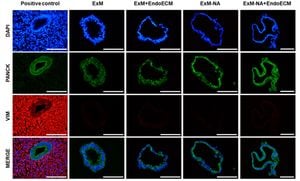Mesut Özil, the former football star famed for his tenure at Arsenal and Real Madrid, has made headlines once again—not for his skills on the pitch, but for his unexpected transition to the political arena. The 36-year-old retired German midfielder recently joined Turkish President Recep Tayyip Erdogan's ruling Justice and Development Party (AKP), marking a significant departure from his previously celebrated football career.
Özil was appointed to the AKP’s Central Decision and Management Board during a party congress held on Sunday, indicating his new role within Turkey's political framework. This decision has reignited conversations about his long-standing relationship with Erdogan, which has garnered both support and substantial criticism from various quarters.
Born to Turkish parents, Özil has often positioned himself as someone bridging two cultures. His association with Erdogan first came under intense scrutiny back in 2018 when he took a controversial photo with the Turkish president during the build-up to Germany's national election. This gesture was not made lightly, as it led to accusations from Reinhard Grindel, then head of the German Football Association (DFB). Grindel alleged Özil and fellow German-Turkish player İlkay Gündoğan were being 'exploited' by Erdogan for political purposes. The situation escalated to the point where some politicians suggested Özil should be sidelined from the national squad as the 2018 World Cup approached.
Despite the backlash, Özil represented Germany during the tournament, making two appearances. Following the World Cup, he announced his retirement from international football, citing widespread racism and disrespect from the DFB. He asserted the controversy surrounding his photo with Erdogan was devoid of any political intent, simply marking respect for the Turkish president as the “highest office of my family’s country.”
The depth of Özil's ties to Erdogan was fortified when Erdogan attended his wedding to Amine Gülşe, a renowned Turkish actress and model, in 2019. This moment cemented his association with the AKP leader, who has been at the helm of Turkish politics for over two decades.
Critics of Erdogan, including many international observers, argue his administration has eroded Turkey’s democratic institutions, transforming the nation increasingly toward autocracy, especially after constitutional reforms enacted in 2018. Against this backdrop, Özil's decision to actively support the ruling party has sparked heated debates. Some supporters see his political involvement as a natural extension of his Turkish heritage. Others view it as endorsement of Erdogan's contentious policies.
Özil, during his impressive career, enjoyed fame and fortune, particularly during his time at Arsenal, where he was one of the highest-paid players. The German-Turkish midfielder showcased his talent with exceptional vision and creativity, contributing to the club as their marquee signing when he transferred from Real Madrid for £42.5 million. Unfortunately, his stellar performance was eclipsed by inconsistencies later on, leading Arsenal fans to feel increasingly disappointed.
This complex relationship with his fanbase raises the question: How might Arsenal supporters reconcile Özil’s political move with memories of his footballing prowess? While he dazzled with moments of magic on the pitch, his recent alignment with Erdogan could polarize opinions among fans who were once ardent supporters.
Public sentiment toward Özil has become mixed, especially within Germany. His Linked connection with Erdogan has perpetuated suspicions of his loyalty to the nation. Many Germans view the photo from 2018 as emblematic of betrayal, questioning how someone who symbolizes multiculturalism could ally with an administration criticized for its undemocratic tendencies. Fans who previously celebrated Özil for his contributions to Germany's 2014 World Cup victory may now feel disillusioned, casting his legacy under scrutiny.
The football community is watching closely as Özil embarks on this new political chapter. Will he navigate these political waters as deftly as he maneuvered through defenses on the pitch? His choice to embrace Erdogan's far-right politics marks perhaps the most significant pivot since he kicked his last ball, leading many to ponder if this will be perceived as the end of his sporting legacy.
Özil's future roles within the AKP and attitudes he displays toward Turkish governance will likely draw attention, not only within Turkey but also internationally. With Erdogan's political actions and stance continuing to stir controversy, Özil's alignment may be viewed as contentious—a narrative set to play out against the backdrop of Turkish politics and the global football community's response.



